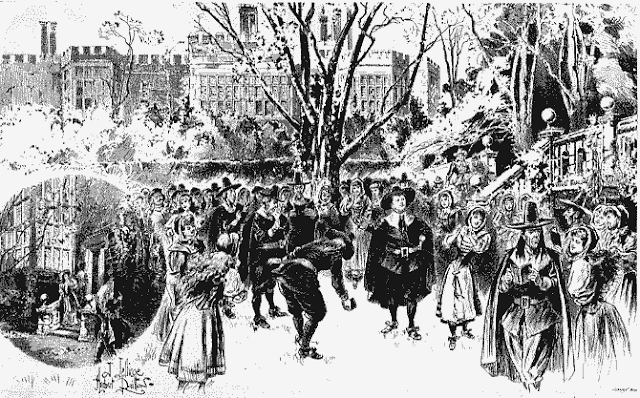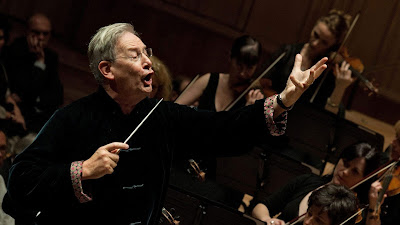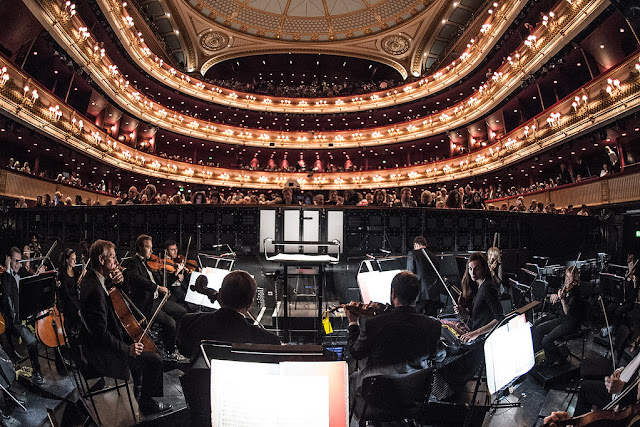 |
| Sonya Yoncheva - Verdi's La Traviata - Metropolitan Opera in 2017 (photo Marty Sohl | Metropolitan Opera) |
In the wake of its recent closure due to concerns around the coronavirus, the Metropolitan Opera has launched free nightly streams of encore presentations from the award-winning
Live in HD series of cinema transmissions on the company website for the duration of the closure. The presentations began last night with Bizet's
Carmen with Elīna Garanča and Roberto Alagna conducted by Yannick Nézet-Séguin, originally broadcast in 2010.
The
Nightly Met Opera Streams begin at 7.30pm local time (11.30pm UK time until the clocks change when it becomes 10.30pm) and remain on the
Met website for 23 hours. The schedule for the forthcoming weeks is as follows:
This week is Wagner week, then next week begins with Poulenc's
Carmelites.
Monday, March 23 – Wagner’s Tristan und Isolde
Conducted
by Simon Rattle, starring Nina Stemme, Ekaterina Gubanova, Stuart
Skelton, Evgeny Nikitin, and René Pape. Transmitted live on October 8,
2016.
Tuesday, March 24 – Wagner’s Das Rheingold
Conducted
by James Levine, starring Wendy Bryn Harmer, Stephanie Blythe, Richard
Croft, Gerhard Siegel, Dwayne Croft, Bryn Terfel, Eric Owens, and
Hans-Peter König. Transmitted live on October 9, 2010.
Wednesday, March 25 – Wagner’s Die Walküre
Conducted
by James Levine, starring Deborah Voigt, Eva-Maria Westbroek, Stephanie
Blythe, Jonas Kaufmann, Bryn Terfel, and Hans-Peter König. Transmitted
live on May 14, 2011.
Thursday, March 26 – Wagner’s Siegfried
Conducted
by Fabio Luisi, starring Deborah Voigt, Hunter Morris, Gerhard Siegel,
Bryn Terfel, and Eric Owens. Transmitted live on November 5, 2011.
Friday, March 27 – Wagner’s Götterdämmerung
Conducted
by Fabio Luisi, starring Deborah Voigt, Wendy Bryn Harmer, Waltraud
Meier, Jay Hunter Morris, Iain Paterson, Eric Owens, and Hans-Peter
König. Transmitted live on February 11, 2012.
Saturday, March 28 – Wagner’s Die Meistersinger von Nürnberg
Conducted
by James Levine, starring Annette Dasch, Johan Botha, Paul Appleby, and
Michael Volle. Transmitted live on December 13, 2014.
Sunday, March 29 – Wagner’s Tannhäuser
Conducted
by James Levine, starring Eva-Marie Westbroek, Michelle DeYoung, Johan
Botha, Peter Mattei, and Gunther Groissböck. Transmitted live on October
31, 2015.
Monday, March 30 – Poulenc’s Dialogues des Carmélites
Conducted
by Yannick Nézet-Séguin, starring Isabel Leonard, Adrianne Pieczonka,
and Karita Mattila. Transmitted live on May 11, 2019.
Tuesday, March 31 – Rossini’s Il Barbiere di Siviglia
Conducted by Maurizio Benini, starring Joyce DiDonato, Juan Diego Flórez, and Peter Mattei. Transmitted live on March 24, 2007.
Wednesday, April 1 – John Adams’s Nixon in China
Conducted by John Adams, starring Janis Kelly and James Maddalena. Transmitted live on February 12, 2011.
Thursday, April 2 – Verdi’s Don Carlo
Conducted
by Yannick Nézet-Séguin, starring Marina Poplavskaya, Roberto
Alagna, Simon Keenlyside, and Ferruccio Furlanetto. Transmitted live
December 11, 2010.
Friday, April 3 – Bizet’s Les Pêcheurs de Perles
Conducted
by Gianandrea Noseda, starring Diana Damrau, Matthew Polenzani, and
Mariusz Kwiecien. Transmitted live January 16, 2016.
Saturday, April 4 – Verdi’s Macbeth
Conducted by Fabio Luisi, starring Anna Netrebko, Joseph Calleja, Željko Lučić, and René Pape. Transmitted live October 11, 2014.
Sunday, April 5 – Bellini’s Norma
Conducted
by Carlo Rizzi, starring Sondra Radvanovsky, Joyce DiDonato, Joseph
Calleja, and Matthew Rose. Transmitted live October 17, 2017.
































%20and%20kids.jpg)
.webp)


.jpg)


